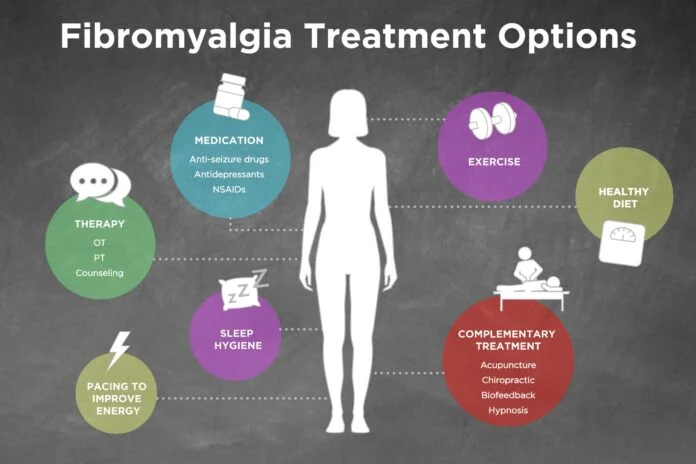Introduction
Living with fibromyalgia can present unique challenges, as the condition brings about widespread pain, fatigue, and a range of symptoms that can impact daily life. In the journey of managing fibromyalgia, self-care becomes an integral aspect of fostering physical and emotional well-being. In this blog, we’ll explore various Fibromyalgia Self-Care strategies tailored to individuals with it, empowering them to navigate their daily lives with greater ease.
1. Prioritize Quality Sleep:
Adequate and restful sleep is paramount for individuals with fibromyalgia. Establishing a consistent sleep routine, creating a comfortable sleep environment, and practicing relaxation techniques before bedtime can contribute to improved sleep quality.
2. Gentle Exercise and Movement:
Engaging in low-impact exercises, such as swimming, walking, or yoga, can be beneficial for managing fibromyalgia symptoms. Gradual and gentle movement helps improve flexibility, reduce stiffness, and enhance overall well-being.
3. Mindful Stress Management:
Chronic stress can exacerbate fibromyalgia symptoms. Incorporating mindfulness practices, such as meditation, deep breathing, or guided imagery, into daily life can help manage stress levels and promote emotional resilience.
4. Balanced Nutrition:
Maintaining a well-balanced diet is essential for overall health. Some individuals with fibromyalgia find that certain dietary adjustments, such as reducing caffeine or avoiding specific trigger foods, can help alleviate symptoms.
5. Hydration:
Adequate hydration is crucial for everyone, but it holds particular importance for individuals with fibromyalgia. Staying well-hydrated can help alleviate symptoms such as headaches and fatigue.
6. Heat and Cold Therapies:
Applying heat or cold to affected areas can provide relief from pain and stiffness. Warm baths, heating pads, and cold packs are simple yet effective methods for managing localized discomfort.
7. Listen to Your Body:
Understanding and respecting your body’s signals is key to effective self-care. Be mindful of your limits, pace yourself, and recognize when to rest. Overexertion can worsen symptoms, so it’s crucial to strike a balance between activity and rest.
8. Establish Supportive Relationships:
Building a support network is essential for emotional well-being. Share your experiences with trusted friends and family members, and consider joining support groups where you can connect with others who understand the challenges of living with fibromyalgia.
9. Create a Relaxing Environment:
Design a calming and comfortable space at home. Consider elements like soothing colors, comfortable furniture, and soft lighting to create an environment that promotes relaxation and reduces stress.
10. Incorporate Joyful Activities:
Engaging in activities that bring joy and fulfillment is a vital aspect of self-care. Whether it’s reading, listening to music, or pursuing a hobby, carving out time for activities that bring happiness contributes positively to overall well-being.
Conclusion
Fibromyalgia self-care is about creating a holistic approach to well-being that encompasses physical, emotional, and lifestyle considerations. By incorporating these self-care strategies into daily life, individuals with fibromyalgia can take proactive steps towards managing symptoms and improving their quality of life. Remember that self-care is a personalized journey, and finding the right combination of strategies that work for you is a valuable part of navigating life with fibromyalgia.

